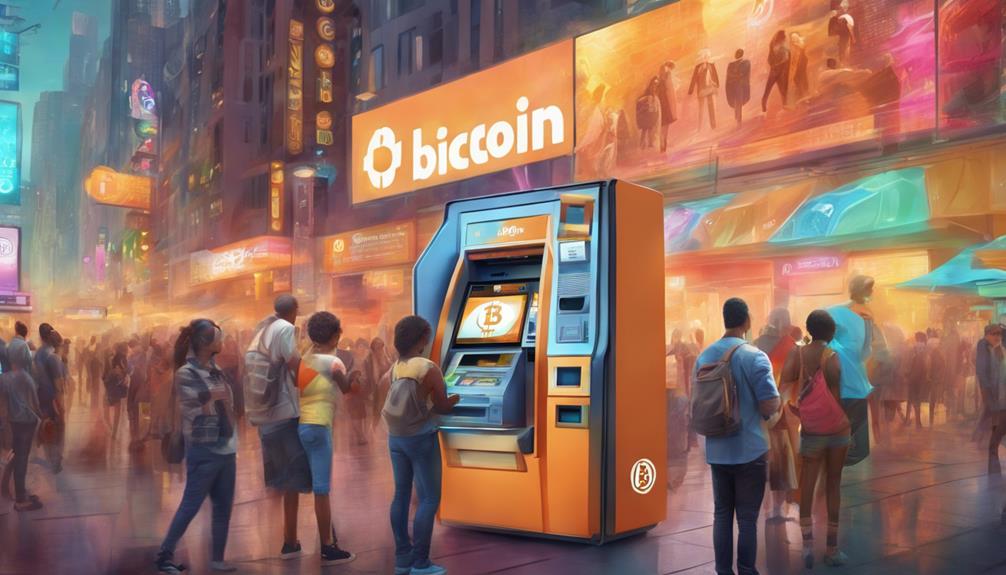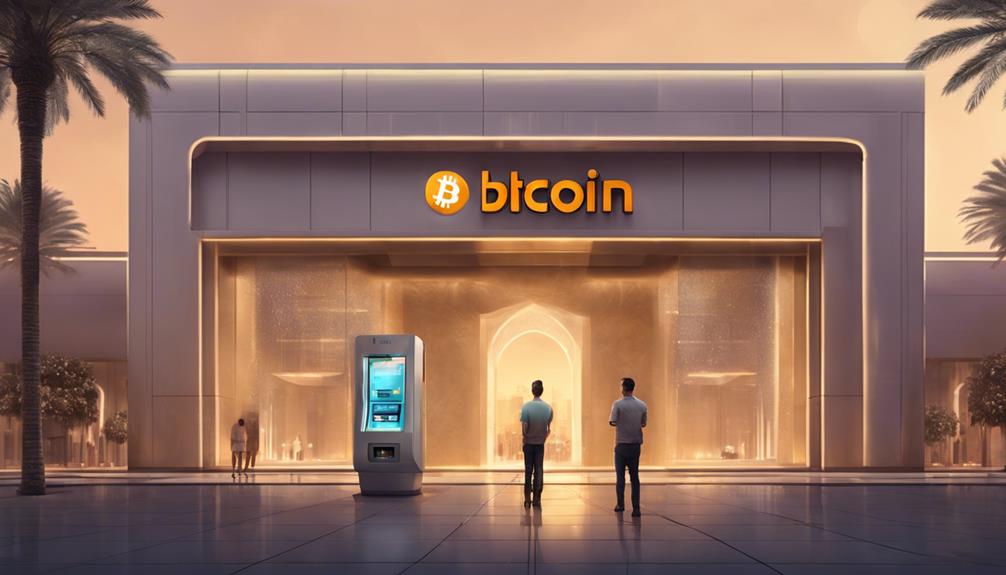Why Will DeFi Shape the Future of Finance?

You've likely heard about DeFi, or decentralized finance, but do you understand how it's set to transform the way you interact with money? By bypassing traditional financial intermediaries, DeFi not only offers you greater control over your assets but also significantly lowers the costs associated with banking services. This shift to a more open, accessible, and efficient financial system could redefine economic participation on a global scale. Consider how this could affect your own financial dealings and the broader implications for global economic systems. What will happen when financial power is redistributed from the few to the many?
Overview of DeFi Technology

Decentralized finance, often referred to as DeFi, is fundamentally transforming how you interact with money. It leverages blockchain technology to eliminate traditional financial intermediaries like banks, brokers, and exchanges. You're now able to transact and manage assets in a peer-to-peer fashion with smart contracts automating and securing the processes.
These smart contracts are self-executing agreements, coded directly onto the blockchain. This means when you're participating in DeFi, the terms of your financial dealings are embedded in the contract code, which executes automatically based on the underlying conditions being met. It's transparent, efficient, and minimizes the risk of human error or manipulation.
You can engage in a variety of financial activities including lending, borrowing, trading, and investing without the need for a central authority. This not only speeds up transactions but also significantly reduces costs, as the layers of middlemen are stripped away.
Moreover, DeFi platforms are typically open-source, allowing you to interact with these systems transparently. You can verify the processes and even participate in the governance of these services, giving you a direct say in how the platform evolves. This democratization of finance not only empowers you but also fosters a more inclusive financial system.
Impact on Traditional Banking
As DeFi continues to evolve, its effects on traditional banking are becoming increasingly apparent. You're witnessing a shift where the once unshakeable pillars of financial institutions seem less formidable.
DeFi, or decentralized finance, leverages blockchain technology to conduct financial transactions, bypassing traditional intermediaries like banks. This means you can engage in lending, borrowing, and trading directly with others, reducing your reliance on banks that have long dictated the terms.
You might find that DeFi offers more competitive rates due to lower overhead costs. Traditional banks often charge hefty fees for transactions and services. DeFi platforms typically reduce or eliminate these fees, passing the savings onto you. This is reshaping how you think about managing your money and investments.
Moreover, traditional banks operate within strict hours and geographical limitations. DeFi is accessible 24/7 from anywhere with an internet connection. This accessibility isn't only convenient but also critical in today's global economy. You're no longer bound to your local branch's schedule or limitations, opening up a world of financial opportunities that didn't exist before.
As you continue to embrace DeFi, you'll likely find that its impact on traditional banking isn't just disruptive but potentially transformative, changing how you interact with money in profound ways.
Advancements in Smart Contracts

Smart contracts are revolutionizing how you engage with digital agreements, propelling the DeFi sector forward. These aren't just typical contracts; they're self-executing, with the terms directly written into code. Imagine you're entering an agreement that automatically enforces itself without any middleman. It's not only faster but significantly reduces the risk of fraud.
These advancements have enabled more complex financial functions to be built into decentralized applications (dApps). You're now seeing lending protocols where assets are pooled and managed autonomously, or insurance services that payout claims based on data that can't be tampered with. This level of automation and security is transforming what's possible in finance.
Developers are also integrating features like upgradability and modularity into smart contracts. This means they can evolve as needed without disrupting the underlying network. You're getting a system that's not only robust but also adaptable to new innovations.
Moreover, with the emergence of new programming languages tailored for blockchain technology, such as Solidity, creating these contracts is becoming more accessible. This democratizes the ability to deploy financial tools, giving you the power to participate directly in these systems. The landscape of finance is shifting, and you're right at the heart of this transformation.
DeFi and Regulatory Challenges
While DeFi's growth sparks innovation, it also encounters significant regulatory challenges. You've seen the explosion of decentralized finance as a way to democratize access to financial services, but this comes with a gray area in legal frameworks.
Since DeFi operates without central oversight, figuring out how to regulate these services isn't straightforward. You're dealing with a system designed specifically to minimize traditional financial intermediaries, which existing regulations heavily target.
Navigating this new terrain, you must consider the risks of money laundering and fraud. DeFi platforms can be misused due to their anonymity and lack of KYC (Know Your Customer) procedures. Regulators worldwide are scratching their heads, trying to balance the need for innovation with the necessity to protect investors.
For instance, the EU's Markets in Crypto-Assets (MiCA) regulation attempts to address these issues without stifling growth.
You'll find that complying with these emerging regulations demands significant effort and adaptation from DeFi projects. They need to implement more robust security measures and transparency to align with regulatory expectations. This could mean a shift in how DeFi platforms operate, potentially affecting their core decentralized ethos.
Future Investment Opportunities

Despite regulatory hurdles, DeFi continues to unveil a plethora of investment opportunities. As you explore this evolving landscape, you'll find innovations like liquidity mining and yield farming, which offer compelling returns compared to traditional banking products. These mechanisms allow you to earn interest or tokens by providing liquidity to a DeFi protocol. It's an engaging way to grow your assets, leveraging smart contracts that automate transactions and minimize trust issues.
Moreover, DeFi is expanding into sectors like insurance and decentralized autonomous organizations (DAOs), creating new avenues for investment. You can now participate in insurance pools or become a stakeholder in emerging projects through DAOs, influencing their development and sharing in their success. This democratizes investing, removing barriers that once favored institutional investors.
It's crucial, however, to approach these opportunities with caution. The DeFi space is still young and volatile, with risks like smart contract vulnerabilities and market instability. You'll need to do your homework, perhaps even consulting with financial experts who understand blockchain technologies.
Conclusion
As you explore DeFi, you'll find it's not just a trend but a revolution in finance. By sidestepping traditional banks and leveraging smart contracts, DeFi offers you 24/7 access to innovative investment opportunities and more control over your financial decisions. Despite facing regulatory hurdles, its promise of transparency and efficiency is reshaping finance. So, dive into DeFi, where the future of finance is not only envisioned but actively being constructed by users like you.





